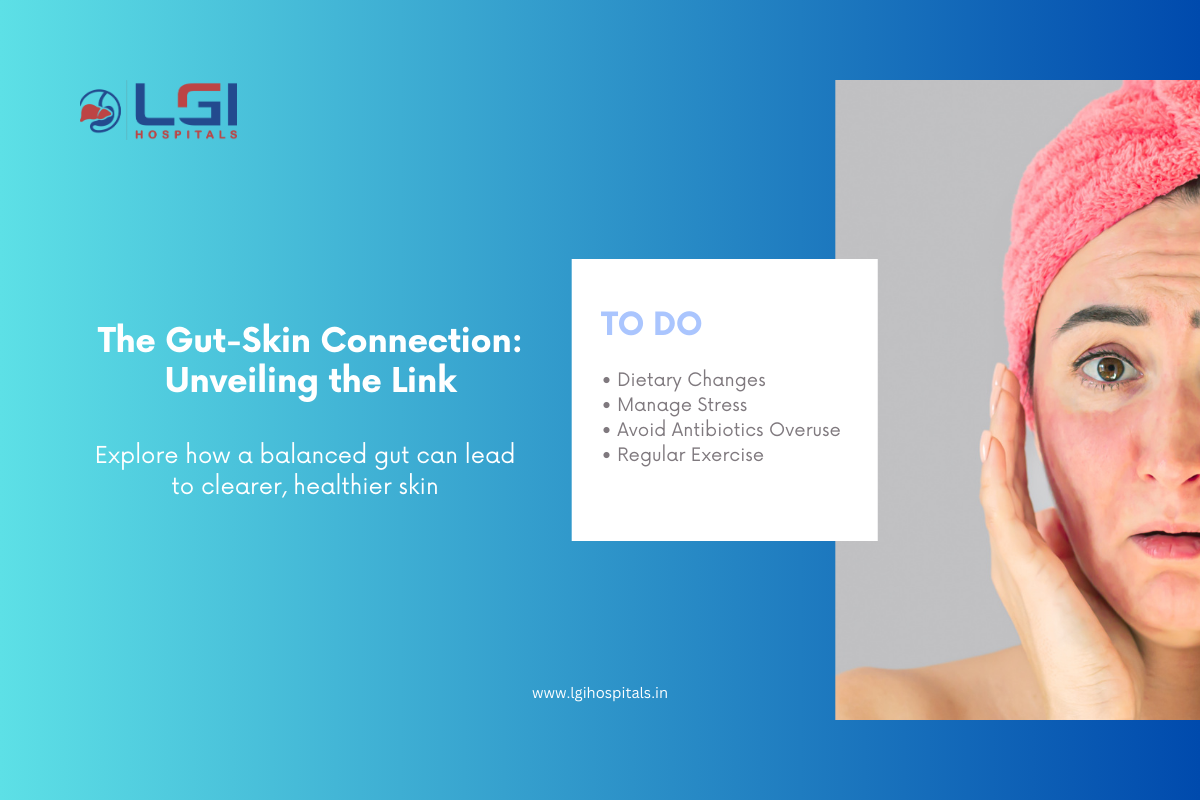The health of your skin and gut are more closely related than you might think. Recent research highlights how gut health can impact your skin, with imbalances potentially leading to a range of skin issues. Let’s explore this fascinating connection and learn how to achieve healthier skin through better gut health.
The Gut health & skin problems Axis: What Is It?
The gut-skin axis is the concept that your gut and skin communicate and influence each other. This connection is mediated by the immune system, hormones, and the microbiome—the diverse community of bacteria and other microorganisms living in your gut. A healthy gut helps maintain healthy skin, while an imbalanced gut can lead to various skin problems.
How Gut Health Affects Your Skin
1. Inflammation: An unhealthy gut can become inflamed, leading to systemic inflammation. This inflammation can manifest in skin conditions such as acne, eczema, psoriasis, and rosacea.
2. Nutrient Absorption: Your gut is responsible for absorbing nutrients from your food. Compromised gut health can hinder nutrient absorption, leading to deficiencies that impact skin health. Essential vitamins like A, C, D, and E, as well as minerals like zinc, are crucial for healthy skin.
3. Microbiome Balance: A diverse and balanced gut microbiome is essential for overall health. When this balance is disrupted (a condition known as dysbiosis), it can affect the skin’s microbiome, leading to issues like dryness, irritation, and infections.
Common Gut Health Issues Linked to Skin Problems
– Leaky Gut Syndrome: When the gut lining is compromised, toxins and undigested food particles can enter the bloodstream, causing inflammation and skin issues.
– Dysbiosis: An imbalance in the gut microbiome can lead to an overgrowth of harmful bacteria, triggering skin conditions.
– Poor Digestion: Inefficient digestion can lead to toxin accumulation, which can be excreted through the skin, causing problems like acne and dullness.
Steps to Improve Gut Health for Better Skin
1. Dietary Changes:
– Eat a Diverse Diet: Incorporate a variety of fruits, vegetables, whole grains, and lean proteins to support a diverse gut microbiome.
– Probiotics and Prebiotics: Include probiotic-rich foods (like yogurt, kefir, and sauerkraut) and prebiotic foods (like garlic, onions, and bananas) to promote healthy gut bacteria.
– Hydration: Drink plenty of water to support digestion and nutrient absorption.
2. Manage Stress:
Chronic stress can negatively impact gut health. Practice stress-reducing activities such as meditation, yoga, or deep-breathing exercises.
3. Avoid Antibiotics Overuse:
Antibiotics can disrupt the gut microbiome. Use them only when necessary and under medical supervision.
4. Regular Exercise:
Physical activity promotes a healthy gut microbiome and reduces inflammation.
5. Limit Processed Foods and Sugar:
A high intake of processed foods and sugar can disrupt gut health and contribute to inflammation.
Understanding the link between gut health and skin problems opens up new avenues for achieving healthier skin. By focusing on improving your gut health through a balanced diet, stress management, and other healthy habits, you can potentially alleviate skin issues and enhance your overall well-being. Remember, a healthy gut is a cornerstone of a healthy body, and your skin will thank you for it!
Feel free to share your experiences or ask questions in the comments below. Have you noticed a connection between your gut health and your skin?

